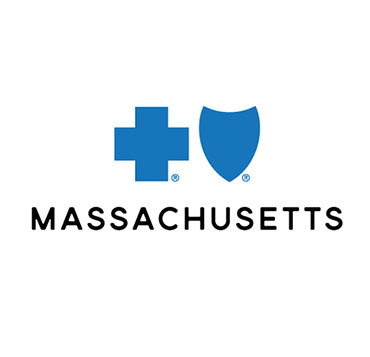BOSTON, Jan. 15, 2019 /PRNewswire/ -- As part of its ongoing commitment to addressing the opioid epidemic, Blue Cross Blue Shield of Massachusetts ("Blue Cross") is launching a new initiative to aid in the growth and standardization of recovery coaches. Recovery coaches are trained professionals, typically with lived experience, who provide peer support to those in treatment and recovery for substance use disorder (SUD). Their services span a wide breadth, from treatment navigation to social re-integration.

"There is promising evidence that suggests recovery coaches can improve outcomes for those with SUD," said Andrew Dreyfus, president & CEO of Blue Cross. "Through this grant program, we want to support the development of the growing recovery coach workforce in Massachusetts and understand our members' experiences with these coaches. We'll also be looking at data from the participating organizations in order to determine potential payment models for this type of support. We want to ensure that our members who are navigating the treatment and recovery journey have access to the support they need to be successful."
As part of the program, Blue Cross will provide grants to 10 organizations ($1 million total) for 24 months. Participating organizations were selected through an RFP process, open to Blue Cross contracted providers serving a minimum number of Blue Cross members with substance use disorder. Each organization has a recovery coach program already underway, staffed by trained coaches and supervisors. The organizations will use the funds to share data on BCBSMA members' experiences with recovery coaches, and to support and expand their recovery coach programs overall.
Many states, including Massachusetts, are exploring ways to integrate recovery coach services more formally into existing care delivery and payment models. However, the recovery coach profession is still in its infancy. Standards for training, experience, supervision and continuing education vary. In response to this evolving landscape, Governor Charlie Baker proposed legislation that would establish a commission to study and recommend standards for recovery coaches – the provision was ultimately included in an opioids-focused bill enacted in August 2018. During his second term inaugural address, Governor Baker reaffirmed his commitment to recovery coach initiatives in 2019 and beyond.
"Recovery coaches are an important resource to help reach individuals with addictions find the path into treatment and recovery," said Massachusetts Health and Human Services Secretary Marylou Sudders.
Pilot program participants include:
-Highpoint Treatment Center | -Gosnold, Inc. |
-Massachusetts General Hospital | -Adcare Outpatient Services |
-Atrius Health | -Arbour Hospital |
-UMass Medical Center | -SSTAR Addiction Treatment |
-Lahey Health Behavioral Services | -Community Healthlink |
"Being treated with compassion by someone who has personally struggled with addiction can make all the difference in someone's recovery," said Ken Duckworth, MD, medical director for behavioral health at Blue Cross. "I've heard from many individuals that someone who's been through the recovery journey themselves can often understand their condition in a way clinical professionals may not. I'm hopeful this program will give us valuable insights on the best ways to utilize and pay for recovery coach services."
Since 2012, with the introduction of its Prescription Pain Medication Safety Program, Blue Cross has been a leader in Massachusetts and nationwide in helping to stem the opioid epidemic through a variety of innovative efforts focusing on education, prevention, treatment, and recovery. Blue Cross is a founding member of RIZE Massachusetts, which seeks to build a $50 million fund focused on bringing real and lasting change to those struggling with substance use disorders in the Commonwealth. In 2018, Blue Cross made a quarter-million-dollar investment in an innovative, peer-to-peer opioids education program called Drug Story Theater and also became the first health plan in the state to provide opioid toolkits for employer customers. The kits, designed to be kept in the workplace, contain two doses of Narcan nasal spray, a surgical mask and gloves, and instructions on administering Narcan. Additionally, Blue Cross has removed co-pays for Narcan for most fully insured plan designs.
For more information on opioid use disorder treatment care options, visit the Blue Cross opioid resource center.
About Blue Cross Blue Shield of Massachusetts
Blue Cross Blue Shield of Massachusetts (bluecrossma.com) is a community-focused, tax-paying, not-for-profit health plan headquartered in Boston. We're the trusted health plan for more than 25,000 Massachusetts employers and are committed to working with others in a spirit of shared responsibility to make quality health care affordable. Consistent with our corporate promise to always put our 2.8 million members first, we're rated among the nation's best health plans for member satisfaction and quality. Connect with us on Facebook, Twitter, YouTube, and LinkedIn.
SOURCE Blue Cross Blue Shield of Massachusetts

